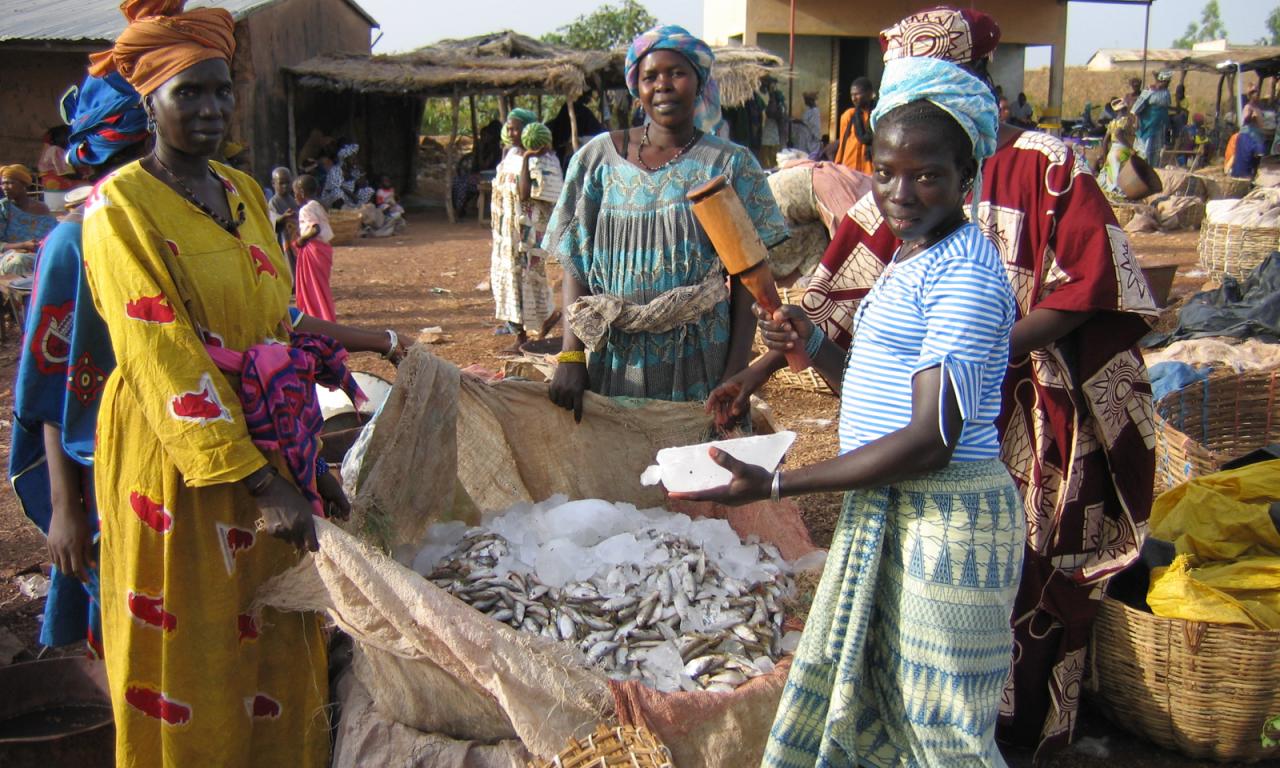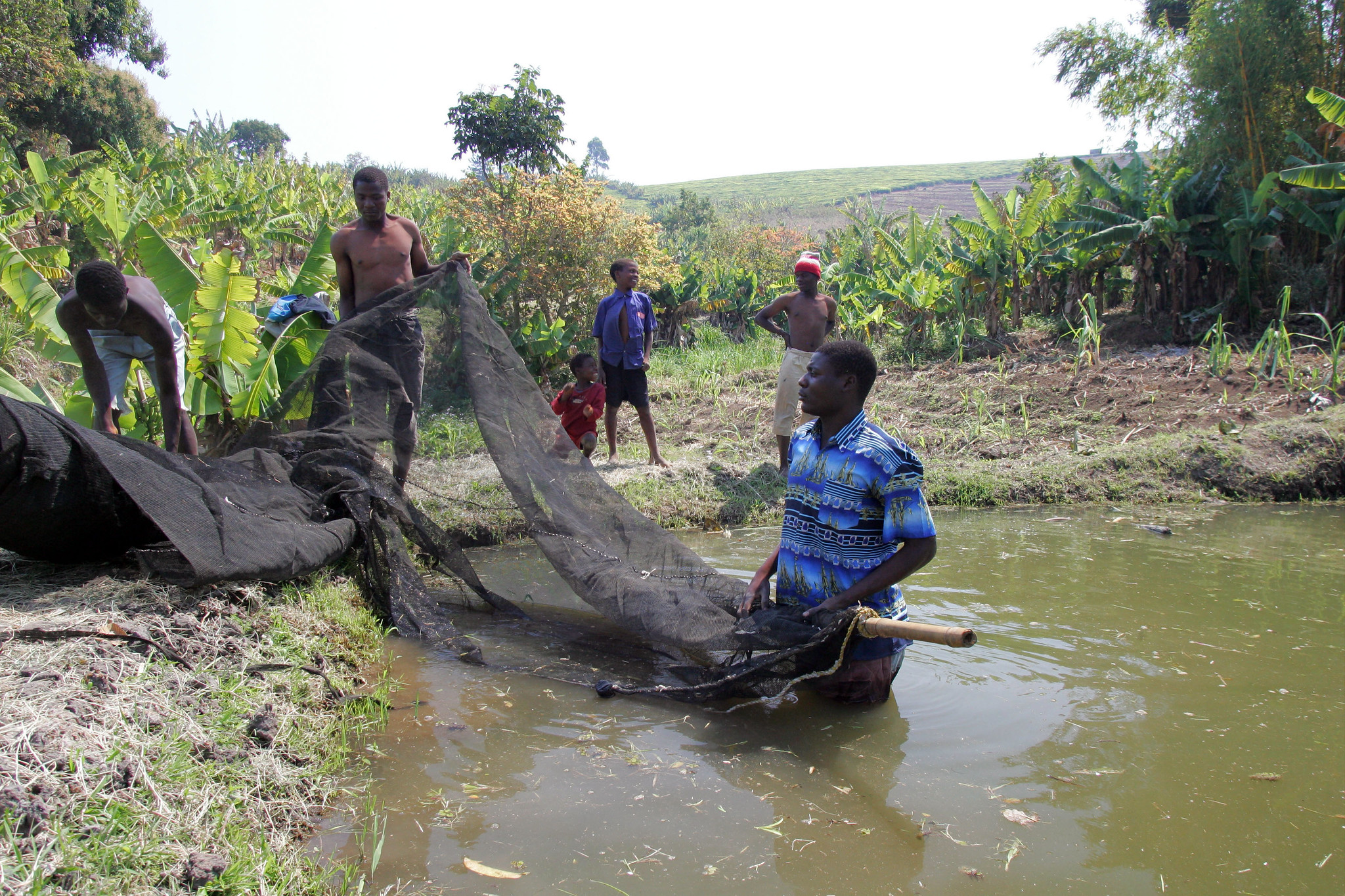
- Africa's aquaculture sector is growing at an annual rate of 11%, nearly double the global average.
- The sector faces a significant investment gap of $12 billion annually, hampering its potential to create jobs and economic prosperity for the continent.
- Small-scale aquaculture is vital for Africa's future, driving socio-economic transformation and providing employment and income, particularly in underserved areas.
At the recent World Aquaculture Society, Africa Chapter Conference in Lusaka, Zambia, a pressing challenge was brought into sharp focus: Africa's significant fish deficit. This gap between supply and demand transcends commercial concerns, touching the core of a more critical issue—nutrition. Numerous African countries find themselves in a difficult position, having to deplete their foreign reserves to import low-value fish. This measure, however provisional it may be, is proving inadequate in meeting the continent's dietary needs for fish and related products.
The Rise of Aquaculture
The aquaculture sector in Africa is growing at an annual rate of 11%—almost double the global average. In some regions, this growth is even more pronounced, with rates reaching between 12–23% per year. To match the escalating needs of an expanding population, experts suggest a necessary growth rate of 15% or higher annually.
This remarkable growth is not just a reflection of economic vitality. It offers a pathway to address deep-seated nutritional gaps and ensure equitable benefits for both women and men. Spurred by public and private sector investments, this expansion has seen the aquaculture landscape transform significantly. Inland water aquaculture, for instance, has grown from a mere 9 cages in 2006 to an astonishing 20,000 by 2019.
The Investment Gap
Despite the promising advancements in the aquaculture sector, there are significant challenges that need to be addressed. One of the most pressing issues is the investment gap. WorldFish analysis has highlighted an alarming annual shortfall of $12 billion in necessary investments. This gap represents more than just a financial hurdle; it is a barrier to unlocking the full potential of the aquaculture sector. The ability to generate 58 million jobs and increase the sector's monetary value to $20 billion annually hinges on overcoming this obstacle. Accessing inclusive and affordable financial services is crucial in this regard. It's not just about injecting capital; it's about ensuring that the investments made are sustainable and equitable, targeting areas that will yield the highest impact in terms of both economic and social transformation. This calls for innovative financial solutions that cater to the unique needs of the aquaculture sector, involving a range of stakeholders from government entities to private investors and multilateral development institutions.
Expanding Small-Scale Aquaculture
The future trajectory of Africa's aquaculture sector may largely depend on the success of small-scale operations. These systems, with their inherent adaptability to diverse local conditions and resources, are poised to be instrumental in driving the sector's expansion. Small-scale aquaculture transcends the production of fish, it is also a pivotal force for socio-economic transformation. It holds the promise of creating employment and generating income, particularly in remote and underserved areas. The significance of small-scale aquaculture also lies in its ability to distribute benefits equitably, thereby contributing to the diversification of livelihoods and the alleviation of poverty. It fosters community engagement and empowerment, particularly for groups that have traditionally been marginalized, including women and youth. The key to maximizing the potential of small-scale aquaculture lies in providing these operators with the necessary support - be it through training, access to resources, or market linkages - to ensure their sustainable growth and contribution to the broader economic fabric.

Safeguarding Growth with Regulatory Frameworks
For the sustainable growth of the aquaculture sector, the development and institutionalization of robust regulatory frameworks are vital. These frameworks are not just administrative tools, they are essential to ensuring that the expansion of aquaculture is conducted responsibly and beneficially. They need to strike a delicate balance between promoting economic development and preserving environmental integrity. This entails establishing regulations that govern practices such as the sustainable sourcing of feed, the maintenance of water quality, and the protection of native ecosystems from invasive species. Additionally, these frameworks should be designed to protect the rights and livelihoods of communities involved in aquaculture. This includes ensuring fair labor practices, equitable access to resources, and the provision of fair benefit sharing mechanism. Involving local communities in the development of these frameworks is crucial, as it ensures that the regulations are grounded in local realities and are more likely to be adhered to. The regulatory frameworks should also be dynamic, capable of evolving with advancements in technology and changes in environmental conditions, ensuring the long-term sustainability and resilience of the aquaculture sector.
Climate-Proofing the Sector
In the quest for sustainable aquaculture, a critical focus is building resilience against climate change. This encompasses developing robust fish strains that can withstand environmental fluctuations, innovating in feed production using local resources to reduce carbon footprint, and implementing efficient water management practices like in-pond raceway systems to address water scarcity. Additionally, adopting best management practices to minimize ecological impact and preparing for extreme weather events are essential. These collective efforts are key in ensuring the aquaculture sector's adaptability and long-term sustainability amidst the growing challenges of climate change.
A Call to Action
As Africa's aquaculture sector stands at a crossroads, the call to action has never been clearer. The path to addressing the continent's fish deficit, stimulating economic growth, and enhancing nutritional security is paved with strategic investments, commitments to small-scale practices, effective regulations, and resilience against climate change.
With the right blend of resources, policies, and community spirit, the aquaculture sector can be central to economic and nutritional well-being. It's a chance to provide sustainable solutions to the fish deficit, create millions of jobs, and nourish the continent's growing population. The time to embark on this transformative journey is now.
